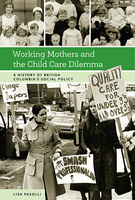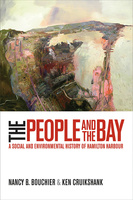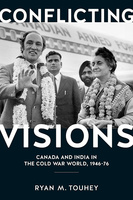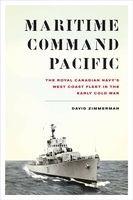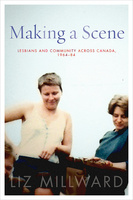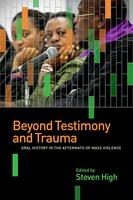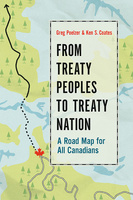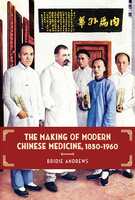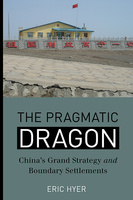Far Off Metal River
Inuit Lands, Settler Stories, and the Making of the Contemporary Arctic
Drawing on the story of the 1771 Bloody Falls massacre, human geographer Emilie Cameron explores the relationship between stories and colonialism, challenging readers to examine their perceptions of the contemporary Arctic and its peoples.
Working Mothers and the Child Care Dilemma
A History of British Columbia’s Social Policy
As a deeply researched history, Working Mothers and the Child Care Dilemma reveals how, for over 100 years, a persistent political uneasiness with the role of mothers in the workforce has contributed to the lack of affordable, quality child care services in British Columbia.
The People and the Bay
A Social and Environmental History of Hamilton Harbour
This engaging history brings to life the personalities and power struggles that shaped how Hamiltonians used their harbour and, in the process, invites readers to consider how moral and political choices being made about the natural world today will shape the cities of tomorrow.
Lock, Stock, and Icebergs
A History of Canada’s Arctic Maritime Sovereignty
Lock, Stock, and Icebergs recounts the events, pressures, and behind-the-scenes negotiations that shaped Canada’s legal claim to the Northwest Passage and the waters of the Arctic Archipelago.
Hearts and Mines
The US Empire’s Culture Industry
A fascinating look at the symbiotic relationships between the US security state and the US culture industry, and their drive to promote the US Empire as a way of life through the production, packaging, and selling of cultural commodities in world markets.
Conflicting Visions
Canada and India in the Cold War World, 1946-76
Conflicting Visions recounts the Cold War history of Canada’s turbulent diplomatic relationship with India, from India’s independence through to its controversial emergence as a nuclear power, using Canadian technology to help build its first nuclear device.
A Town Called Asbestos
Environmental Contamination, Health, and Resilience in a Resource Community
In A Town Called Asbestos, a mining town’s proud and painful history is unearthed to reveal the challenges a small resource community faced in a globalized world.
Maritime Command Pacific
The Royal Canadian Navy’s West Coast Fleet in the Early Cold War
One of Canada’s leading military historians recounts the story of the Canadian navy’s Pacific fleet during the tense years of the early Cold War.
Making a Scene
Lesbians and Community across Canada, 1964-84
A celebratory history of how lesbians “made a scene” by creating places and opportunities to form relationships, debate politics, and build their own culture across Canada.
From Slave Girls to Salvation
Gender, Race, and Victoria’s Chinese Rescue Home, 1886-1923
A fascinating and critical study of the Chinese Rescue Home, an iconic institution in Victoria, BC, where members of the Women’s Missionary Society taught domestic skills to Chinese and Japanese women believed to be prostitutes, slave girls, or to be at risk of falling into these roles.
Beyond Testimony and Trauma
Oral History in the Aftermath of Mass Violence
By challenging the ways that survivors of mass violence are typically understood as either eyewitnesses to history or victims of it, the contributors to this volume ask us to go “beyond testimony” to embrace sustained listening and collaborative research design.
So They Want Us to Learn French
Promoting and Opposing Bilingualism in English-Speaking Canada
So They Want Us to Learn French examines how and why Canadians both embraced and virulently opposed the ideal of personal bilingualism over the past fifty years, detailing and analyzing the strategies that social movements on both sides used to advance their goals.
Disarming Intervention
A Critical History of Non-Lethality
Disarming Intervention traces the social, historical, and legal legitimization of non-lethal weapons in the United States.
From Treaty Peoples to Treaty Nation
A Road Map for All Canadians
From Treaty Peoples to Treaty Nation is essential reading for all Canadians who want to understand how Canadian political and economic systems can accommodate Aboriginal aspirations and ensure a better future for all Canadians.
When Good Drugs Go Bad
Opium, Medicine, and the Origins of Canada’s Drug Laws
This intoxicating look at the history of drug regulation in Canada reveals how a variety of social and political forces converged at the turn of the twentieth century to transform both public attitudes toward, and access to, narcotics.
Grit
The Life and Politics of Paul Martin Sr.
Grit examines the remarkable life and political career of Paul Martin Sr., a liberal reformer and cabinet minister from 1945 to 1968, who championed health care and pension rights, new meanings for Canadian citizenship, and internationalism in world affairs.
Resettling the Range
Animals, Ecologies, and Human Communities in British Columbia
This unconventional history looks at the resettlement of interior British Columbia from the perspective of campaigns to exterminate grasshoppers and wild horses, creatures considered by some to be pests.
The Making of Modern Chinese Medicine, 1850-1960
A history of the convergence of Western and Chinese medical practices in modern China.
The Pragmatic Dragon
China’s Grand Strategy and Boundary Settlements
Presenting a historical survey of China’s boundary disputes and settlements, Hyer demonstrates that its approach to territorial disputes has been pragmatic and strategic.
Remembering the Samsui Women
Migration and Social Memory in Singapore and China
A study of the Samsui women who migrated from China to Singapore, where they have been commemorated as nation-builders.


